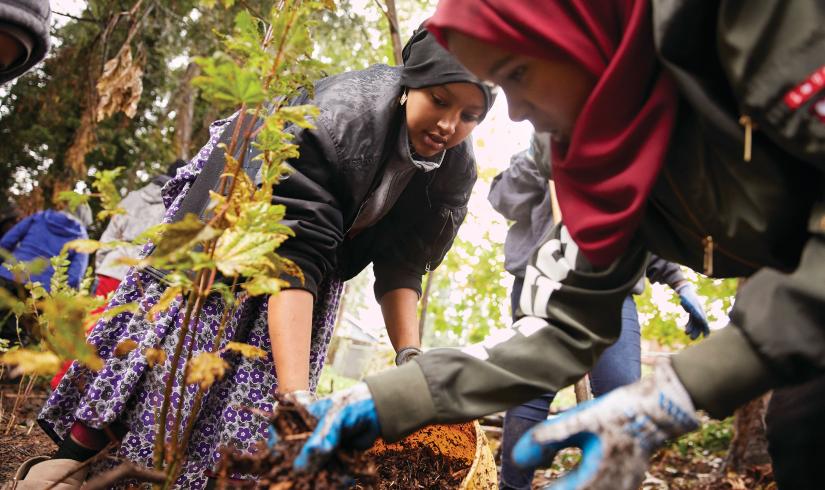
We all want to be safe, right? - I think we can all agree that ideally, the ground beneath our feet would never shake and that the nearby snow-capped mountains we love to gaze at would never explode, raining piles of ash and rivers of volcanic mud into our communities. We live in exactly this sort of place, however, between the Olympic and Cascade ranges, created and continually influenced by the slow but steady grind of the tectonic plate of Juan de Fuca slipping underneath the North American continental plate. Earthquakes and volcanoes are the prices we pay for the beauty that surrounds us.
Does it make sense to live in such a place, knowing in our heads, but maybe not our hearts, that inevitably our foundations will shake violently, and that our beloved, majestic mountain may explode, sending torrents of mud and debris into low-lying communities?
The easy answer is no, of course not. We should build in places far from fault lines where earthquakes and volcanoes are less threatening, but we don’t. Not here, in the Puget Sound region, nor in Oregon or California. Or Alaska. Or Hawaii. Or anywhere along the Pacific Rim, the Himalayas, Indonesia, North Africa, or the Mediterranean.
The curious thing is that most human civilizations sprung up in exactly these locations, long before there was any knowledge of plate tectonics, and today, even though we are aware of the risks, continue to build. Why would we do this?
Lewis Dartnell, science professor at the University of Westminster and author of the book Origins: How Earth’s History Shaped Human History, explains that humans settled precisely in these dangerous areas because the same process that creates unstable fault lines and magma-filled mountains also creates the most fertile soil and sources of fresh water, two of the most important requirements for human existence. The exact same forces that would destroy us also sustain and enrich us.
In a figurative sense, this past year has been no different. Our communities were violently shaken by COVID-19 and the magma of social injustice boiled to the surface, erupting violently in communities throughout the United States.
But the same forces that would destroy us also sustain and enrich us.
The shaking has calmed, and the magma has cooled, slightly. Yes, there is much debris to sort through still, but the freshest, most fertile soil has come to the surface, bringing opportunity for new life to grow and flourish. Opportunities to find new ways to serve our communities, learning from what didn’t hold up to the shaking, and seeking ways to understand and alleviate the pressures that create the fiery pools of discrimination and inequity that threaten to consume our cities.
We can sit and mourn what once was, or we can recognize the opportunities that lie before us, plant in that fresh, fertile soil, and reap tremendous harvests in the years ahead. How we choose to look at the landscape before us is how we will respond. Will we be prisoners of the past or farmers of the future?
We have the tools.
We have fertile ground, ripe for planting and prospecting.
We have opportunity.
“The gold prospector wields his pickaxe and the prisoner in chains wields his pickaxe. The man who sinks his pickaxe into the ground wants that stroke to mean something. The convict’s stroke is not the same as the prospector’s, for the obvious reason that the prospector’s stroke has meaning, and the convict’s stroke has none. It would be a mistake to think that the prison exists at the point where the convict’s stroke is dealt. Prison is not mere physical horror. It is using a pickaxe to no purpose that makes a prison; the horror resides in the failure to enlist all those who swing the pick in the community of mankind.” -Antoine de Saint-Exupéry, “Wind, Sand, and Stars”.
We have a mission.
- By Andrew Homan, Network Administrator for the YMCA of Pierce and Kitsap Counties